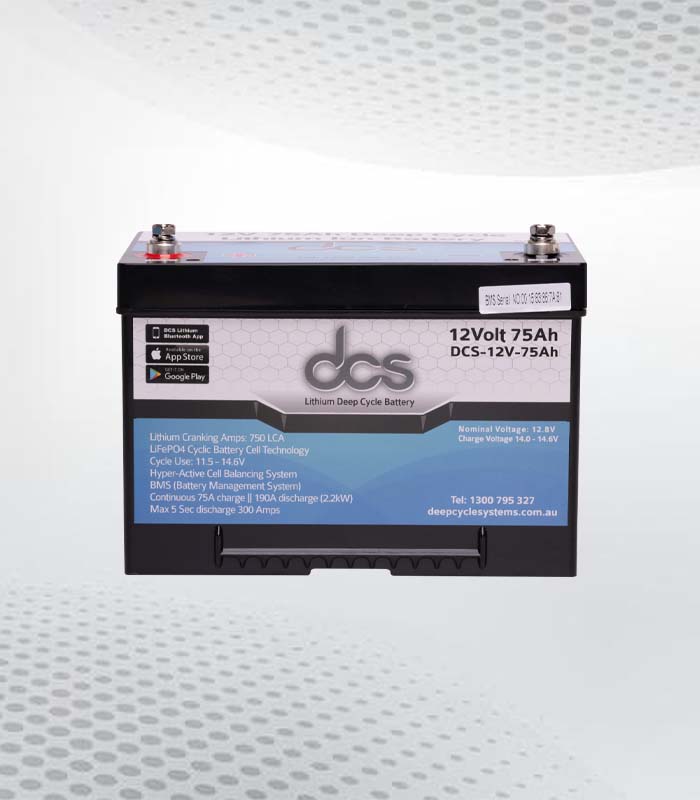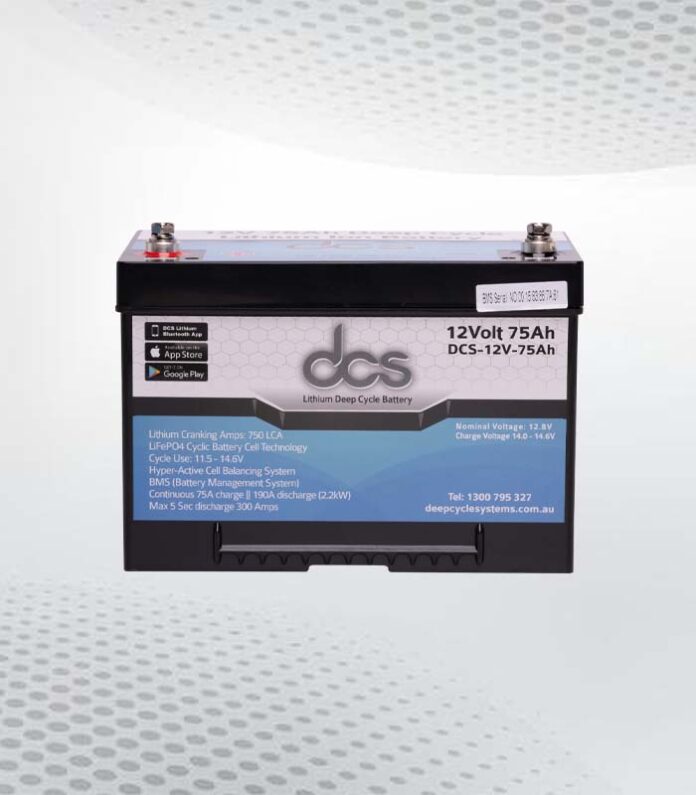In the vast and ever-evolving world of batteries, one type stands out for its exceptional balance of performance, safety, and sustainability—the LiFePO4 battery 12V 100Ah. This battery technology is revolutionising the way we power our vehicles, solar energy systems, and a variety of portable devices. But what exactly makes it so superior? In this blog post, we delve deep into the advantages, features, and applications of the Lifepo4 battery 12-volt 100ah, offering insights into why it is increasingly becoming the preferred choice for a wide range of energy needs.
Understanding LiFePO4 Battery Technology
LiFePO4 batteries, also known as lithium iron phosphate batteries, represent a significant advancement in battery technology. This type of battery stands out due to its use of lithium iron phosphate as the cathode material, along with a graphitic carbon electrode supported by a metallic substrate as the anode.
This unique composition not only gives the battery a more robust and stable chemical structure, but also contributes to its extended service life, improved resistance to temperature changes, and superior safety features. The chemical stability provided by the lithium iron phosphate reduces the risks associated with thermal runaway, a concern that is prevalent in other lithium-based batteries.
Additionally, LiFePO4 batteries exhibit a lower rate of capacity loss over time, resulting in a greater number of charge-discharge cycles. This durability is a testament to the long-lasting nature of LiFePO4 batteries, making them an excellent choice for applications where reliability and durability are essential. The technology’s inherent stability and performance efficiency set it apart from traditional lithium-ion batteries, representing a groundbreaking shift towards safer and more dependable energy storage solutions.
The Advantages of a 12V 100Ah LiFePO4 Battery
The 12V 100Ah LiFePO4 battery heralds numerous benefits, positioning it as a leading choice among various battery technologies. It possesses a remarkable energy density, which permits a substantial amount of energy storage within a relatively compact footprint. This attribute renders it exceptionally suitable for applications where space and weight are of paramount concern.
Contrastingly to conventional lead-acid batteries, the LiFePO4 variant demonstrates a significantly enhanced lifespan, with the capacity to endure over 2000 charge-discharge cycles while maintaining its efficiency. Such an enduring lifespan mitigates the need for frequent replacements, thus providing an economical advantage over time.
Moreover, the 12V 100Ah LFP battery supports rapid charging and discharging, offering users greater convenience and flexibility in how and when they utilise their energy reserves. This feature is particularly beneficial in scenarios requiring quick energy turnover, such as in emergency power supplies or during peak demand times in solar energy setups. Importantly, these batteries maintain their performance across a wide temperature range, making them adaptable to various environments without compromising on efficiency or safety.
Given these compelling attributes, the 12V 100-Ah LiFePO4 battery stands out for its ability to combine high performance with practicality, presenting an attractive solution for a broad spectrum of energy storage needs.
Safety Features That Set LiFePO4 Apart
When evaluating battery options, the safety profile of the Lifepo4 battery 12-volt 100ah distinguishes it as a market leader. The core composition of lithium iron phosphate ensures a significantly lower risk of incidents related to thermal runaway—a serious hazard in various lithium-based alternatives. This inherent chemical stability underpins its exceptional safety record, allowing for peace of mind in applications where risk mitigation is paramount.
Beyond its stable chemistry, these batteries incorporate several dedicated safety mechanisms designed to prevent overcharging, deep discharging, and short-circuiting. Integrated protection circuits and thermal fuses act as critical fail-safes, further bolstering the battery’s defences against potential operational hazards. This comprehensive approach to safety, combining inherent chemical stability with advanced protective features, places the Lifepo4 battery 12-volt 100ah at the forefront of secure energy storage solutions.
The reduction of fire risk and explosion hazard associated with thermal runaway is especially significant. It means that LiFePO4 batteries can be confidently used in a wide range of environments—from the interior of electric vehicles to remote solar power installations—without the safety concerns that accompany other battery technologies.
This confidence in the battery’s safety profile is a testament to the advanced engineering and thoughtful design that characterise the Lifepo4 battery 12-volt 100ah, highlighting its position as the preferred choice for those prioritising safety alongside performance and efficiency.
Charging and Maintenance Insights
Caring for and charging a Lifepo4 battery 12-volt 100ah involves straightforward procedures, markedly differentiating it from the traditional maintenance routines associated with lead-acid batteries. These lithium iron phosphate batteries eliminate the necessity for periodic watering and the routine checks on electrolyte levels that are part and parcel of lead-acid battery upkeep.
Notably, LiFePO4 batteries are immune to the detrimental effects of partial charges, sidestepping the memory effect that plagues various other battery types, which can lead to diminished capacity over time.
However, to safeguard their operational integrity and ensure they reach their full lifespan, it’s imperative to employ a charger specifically tailored for LiFePO4 batteries. The reason lies in their unique charging curve and requirements, which diverge significantly from those of standard lithium-ion or lead-acid batteries.
Utilising an incompatible charger not only risks undermining the battery’s performance but can also precipitate premature wear. It’s also beneficial to observe best practices such as avoiding over-discharging the battery. Keeping the battery charged within its optimal voltage range is crucial for preserving its health.
While LiFePO4 batteries are renowned for their robustness and longevity, adhering to these guidelines will maximise both their performance and service life, ensuring they remain a reliable source of power for their intended applications.
Diverse Applications of the Lifepo4 battery 12-volt 100ah
The multifaceted nature of the Lifepo4 battery 12-volt 100ah ensures its suitability for a broad spectrum of uses, showcasing remarkable adaptability across various industries. Within the automotive realm, these batteries are increasingly favoured for powering electric vehicles (EVs), attributed to their robust energy density and exemplary safety credentials.
The renewable energy sector also benefits substantially from the deployment of LiFePO4 batteries, particularly in solar and wind energy storage systems, where their ability to endure deep discharge cycles without compromising efficiency is invaluable. Beyond these applications, the battery’s lightweight and compact design make it an excellent choice for portable power needs.
Adventurers and outdoor enthusiasts find these batteries ideal for camping gear, owing to their reliability and long lifespan. In marine settings, they provide dependable power for navigation and communication equipment, enhancing safety and convenience on the water.
Backup power systems, too, leverage the swift charging and deep discharge capabilities of the Lifepo4 battery 12-volt 100ah, ensuring continuity of power during outages. This diverse applicability underlines the battery’s integral role in driving forward innovations and efficiency improvements across a multitude of sectors, highlighting its versatility and reliability as key factors in its widespread adoption.
Tips for Maximising Battery Performance and Longevity
To ensure the optimal functioning and longevity of your Lifepo4 battery 12-volt 100ah, it’s essential to adhere to certain practices. Foremost among these is the avoidance of exposure to extreme temperature conditions. Both excessive heat and severe cold can adversely affect the battery’s efficiency and lifespan. It’s advisable to store and operate the battery within its recommended temperature range to prevent any detrimental effects.
Regular monitoring of the battery’s voltage is crucial. Keeping the battery charged within its specified voltage range promotes health and longevity, preventing the risks associated with overcharging or deep discharging. This practice not only maintains the battery’s capacity but also contributes to its sustained performance over time.
Another key aspect involves the state of charge of the battery. Allowing the battery to become fully depleted before recharging can shorten its life. It’s beneficial to maintain a regular charging routine, ensuring the battery does not remain at a low charge level for extended periods. This approach helps in preserving the battery’s structural integrity and maximising its usable lifespan.
Finally, while LiFePO4 batteries are known for their robustness, employing a charger designed specifically for these batteries is imperative. Using an appropriate charger ensures the battery is charged correctly, according to its unique requirements, safeguarding against potential damage and prolonging its service life.
The Economic and Environmental Impact
The economic and environmental footprint of the Lifepo4 battery 12-volt 100ah is significantly lighter than that of traditional battery technologies, marking a notable shift towards more sustainable energy storage solutions. The longevity of these batteries is a principal factor in their economic advantage.
Given their ability to endure upwards of 2000 charge-discharge cycles with minimal degradation, the need for frequent replacements is greatly reduced. This durability translates into substantial cost savings over time, as the initial investment is amortised over a longer operational lifespan.
From an environmental perspective, LiFePO4 batteries present a greener alternative. Their production involves materials that are less harmful to the environment, devoid of heavy metals and toxic elements commonly found in other batteries. This characteristic minimises the ecological footprint associated with their disposal.
Furthermore, the recyclability of LiFePO4 batteries underscores their sustainability, facilitating the recovery of valuable materials and reducing the volume of waste consigned to landfill. This cycle of reuse embodies the principles of a circular economy, wherein resources are utilised more efficiently and sustainably.
By integrating these batteries into various applications, users contribute to a reduction in environmental impact, aligning with global efforts to curb pollution and foster a more sustainable future. The economic and ecological benefits of the Lifepo4 battery 12-volt 100ah thus offer a compelling case for their adoption, reflecting a convergence of economic prudence and environmental stewardship.
FAQs
1. Can LiFePO4 batteries operate efficiently in cold conditions?
Indeed, LiFePO4 batteries are capable of functioning in lower temperatures more effectively compared to other lithium-ion variants. However, it’s noteworthy that their efficiency might slightly diminish when subjected to extremely cold environments.
2. Is it necessary to use specific chargers for LiFePO4 batteries?
Absolutely, to guarantee the longevity and optimal performance of LiFePO4 batteries, utilising chargers expressly designed for them is crucial. This ensures that the battery is charged correctly, adhering to its unique requirements and preventing potential damage.
3. How do the initial costs of LiFePO4 batteries compare with those of other battery types?
Initially, LiFePO4 batteries might present a higher cost when compared to traditional batteries. Yet, their extended lifespan and minimal maintenance requirements render them more economically viable over time, offsetting the upfront investment.
4. Are LiFePO4 batteries subject to recycling?
Yes, the recyclability of LiFePO4 batteries highlights their environmental advantage. This aspect facilitates the reclamation of valuable materials and lessens the environmental burden by reducing the amount of waste directed to landfills, aligning with sustainable resource utilisation practices.
Conclusion
In summary, the LiFePO4 battery 12V 100Ah encapsulates a remarkable blend of durability, safety, and environmental sustainability, making it an unrivalled choice for a diverse array of applications. With its advanced technology, this battery not only ensures a reliable power source but also promotes economic and ecological well-being. Embracing the LiFePO4 battery is a step towards harnessing efficient, safer energy solutions that align with the future of sustainable power.
| Other Good Articles to Read |
| Blogs-Nation |
| Blogs-Peoples |
| Bryan Smith Blogs |
| intellect blogs |
| the fault in our blogs |
| oz forums |
| recruitment blogs |
| zet blogs |
| id blogs |
| Blog Studio legale |
| blogs map |
| Related Business Listings |
| Directory Submissions |
| Regional Directory |
